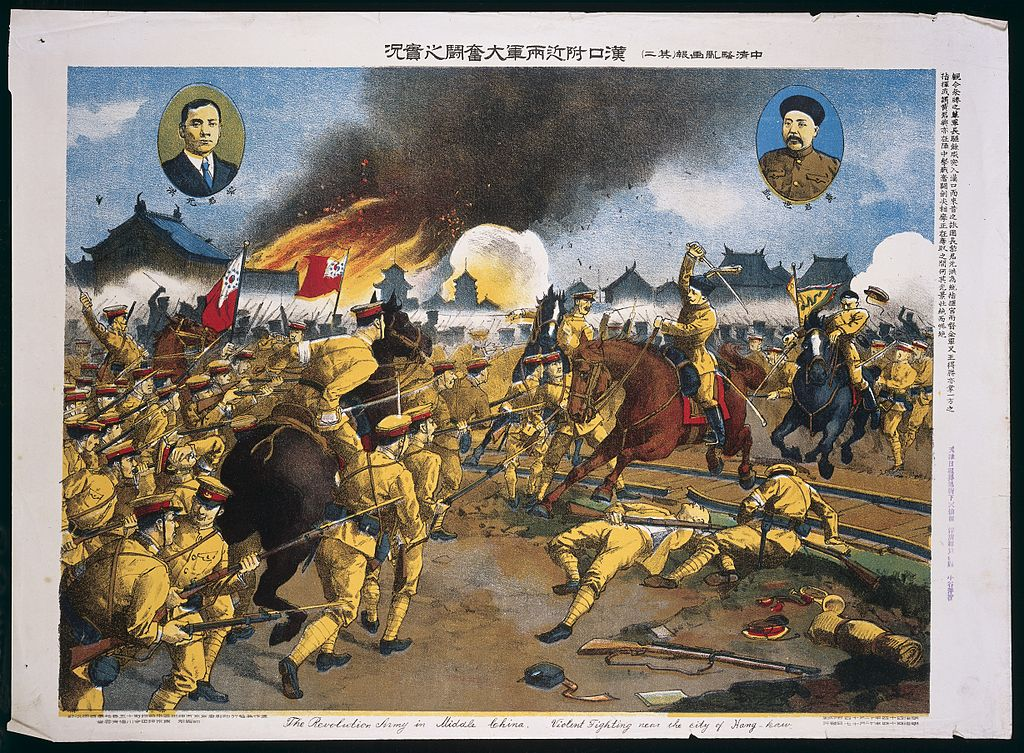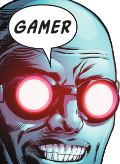The 1911 Revolution, also known as the Xinhai Revolution or Hsinhai Revolution, ended China's last imperial dynasty, the Qing dynasty, and led to the establishment of the Republic of China. The revolution was the culmination of a decade of agitation, revolts, and uprisings. Its success marked the collapse of the Chinese monarchy, the end of over two millennia of imperial rule in China and the 200-year reign of the Qing, and the beginning of China's early republican era.
The Qing had struggled for a long time to reform the government and resist foreign aggression, but the program of reforms after 1900 was opposed by conservatives in the Qing court as too radical and by reformers as too slow. Several factions, including underground anti-Qing groups, revolutionaries in exile, reformers who wanted to save the monarchy by modernizing it, and activists across the country debated how or whether to overthrow the Qing dynasty. The flash-point came on 10 October 1911, with the Wuchang Uprising, an armed rebellion among members of the New Army. Similar revolts then broke out spontaneously around the country, and revolutionaries in all provinces of the country renounced the Qing dynasty. On 1 November 1911, the Qing court appointed Yuan Shikai (leader of the powerful Beiyang Army) as prime minister, and he began negotiations with the revolutionaries.
In Nanjing, revolutionary forces created a provisional coalition government. On 1 January 1912, the National Assembly declared the establishment of the Republic of China, with Sun Yat-sen, leader of the Tongmenghui (United League), as President of the Republic. A brief civil war between the North and the South ended in compromise. Sun would resign in favor of Yuan, who would become President of the new national government, if Yuan could secure the abdication of the Qing emperor. The edict of abdication of the six-year-old Xuantong Emperor, was promulgated on 12 February 1912. Yuan was sworn in as president on 10 March 1912.
In December 1915, Yuan restored the monarchy and proclaimed himself as the Hongxian Emperor, but the move was met with strong opposition from the population and the Army, leading to his abdication in March 1916 and the reinstatement of the Republic. Yuan's failure to consolidate a legitimate central government before his death in June 1916 led to decades of political division and warlordism, including an attempt at imperial restoration of the Qing dynasty.
The revolution is named Xinhai because it occurred in 1911, the year of the Xinhai (辛亥) stem-branch in the sexagenary cycle of the traditional Chinese calendar. The governments of Taiwan and China both consider themselves the legitimate successors to the 1911 Revolution and honor the ideals of the revolution including nationalism, republicanism, modernization of China and national unity. 10 October is the National Day of the Republic of China on Taiwan, and the Anniversary of the 1911 Revolution in the PRC.
Megathreads and spaces to hang out:
- 📀 Come listen to music and Watch movies with your fellow Hexbears nerd, in Cy.tube
- 🔥 Read and talk about a current topics in the News Megathread
- ⚔ Come talk in the New Weekly PoC thread
- ✨ Talk with fellow Trans comrades in the New Weekly Trans thread
- 👊 Share your gains and goals with your comrades in the New Weekly Improvement thread
reminders:
- 💚 You nerds can join specific comms to see posts about all sorts of topics
- 💙 Hexbear’s algorithm prioritizes comments over upbears
- 💜 Sorting by new you nerd
- 🌈 If you ever want to make your own megathread, you can reserve a spot here nerd
- 🐶 Join the unofficial Hexbear-adjacent Mastodon instance toots.matapacos.dog
Links To Resources (Aid and Theory):
Aid:
Theory:

I had a bad time playing deadlock. I told my lane partner to focus last hitting while I zone the others. This person I frequently don't get along with (and wasn't playing) said I was micro managing. It threw off the whole game for me and probably everyone else. I don't want to walk on eggshells when playing a game and I feel like my lane partner could tell me no if they disagreed.
I don't think I was coming off as controlling but what I like most about games is making calls and discussing whether it's the right play or not. I'm still mad about it. I'm not even that good at the game but here I am analyzing if what I said came off correctly or if I was being a bad typical or not
or not 
Having a carry on last hit duty isn't micromanaging lmao, it's a fundamental part of nearly every game in the genre
Someone should be controlling. Teams with a clear leader who can manage top level strategy so everyone else is free to do their job, while knowing they'll get backup if the situation changes, are winning teams.
Yeah that's what I think, too. Like, if he had said no I'd want to hear his reasoning. After laning phase I move to the backseat anyways because I'm still not comfortable with some of the meta decisions. It's a fun game, not sure I agree with all of the directions its taking but I'll let them stew.
This person has been bugging me for a while might be time to mute and move on.